Filter by
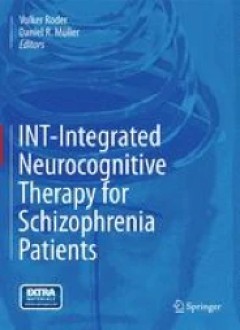
INT-Integrated Neurocognitive Therapy for Schizophrenia Patients
This book contains concrete and step by step information with many practical examples. It is in line with the most actual international empirical findings about schizophrenia and contains the most updated therapy approach being available currently. The techniques and exercises (partly computer-based) are described in detail. Case examples point out specific therapeutic situations and teach the …
- Edition
- 1
- ISBN/ISSN
- 978-3-319-13244-0
- Collation
- X, 141
- Series Title
- -
- Call Number
- 150 INT
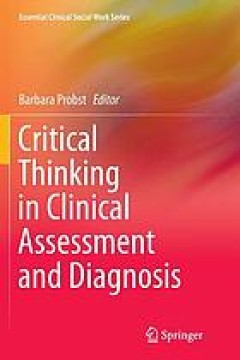
Critical Thinking in Clinical Assessment and Diagnosis
This much-needed volume brings to the clinician or student some of the best critical-minded analysis by some of the most insightful thinkers about psychiatric diagnosis today. The thought-provoking questions these essays raise, and the multifaceted and provocative answers they provide, cultivate sensitivity to the nuances of diagnostic assessment that often makes the difference between clinical…
- Edition
- 1
- ISBN/ISSN
- 9783319177748
- Collation
- XVI, 304
- Series Title
- Essential Clinical Social Work Series
- Call Number
- 616.89

A Generation at Risk
With a Foreword by Desmond Tutu, Generation at Risk brings insightful perspectives from experienced practitioners and researchers on how a better future can be secured for the millions of children who are being orphaned or made vulnerable by HIV/AIDS. The current situation of these children is grim, and while there has been significant action by governments, international organizations, religio…
- Edition
- Geoff Foster,Carol Levine,John Williamson
- ISBN/ISSN
- 9781139164436
- Collation
- -
- Series Title
- -
- Call Number
- -

Treatment of Chronic Pain by Integrative Approaches the AMERICAN ACADEMY of …
From reviews of Deer, eds., Comprehensive Treatment of Chronic Pain by Medical, Interventional, and Integrative Approaches: "Comprehensive Treatment of Chronic Pain by Medical, Interventional, and Integrative Approaches is a major textbook... [I]t should be a part of all departmental libraries and in the reference collection of pain fellows and pain practitioners. In fact, this text could b…
- Edition
- -
- ISBN/ISSN
- 978-1-4939-1821-8
- Collation
- -
- Series Title
- -
- Call Number
- -
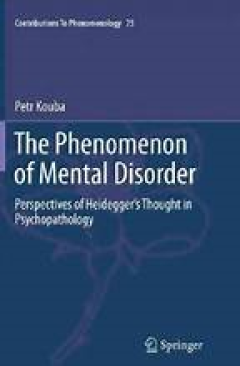
The Phenomenon of Mental Disorder
This book provides a critical introduction to Heidegger’s impact on psychiatry and psychology, and has a focus on the application of his philosophy to psychiatry. This is a complete revision of Heidegger’s existential philosophy in the light of psychopathological phenomena. Readers will find here a philosophical inquiry into the problem of mental disorder, which shows Heidegger’s own phil…
- Edition
- -
- ISBN/ISSN
- 978-3-319-10323-5
- Collation
- -
- Series Title
- XI, 214 , 2 b/w illustrations
- Call Number
- -

The Most Dreadful Visitation : Male Madness in Victorian Fiction
Victorian literature is rife with scenes of madness, with mental disorder functioning as everything from a simple plot device to a commentary on the foundations of Victorian society. But while madness in Victorian fiction has been much studied, most scholarship has focused on the portrayal of madness in women; male mental disorder in the period has suffered comparative neglect. In ‘The Most D…
- Edition
- -
- ISBN/ISSN
- -
- Collation
- -
- Series Title
- Liverpool English Texts and Studies
- Call Number
- 808.83
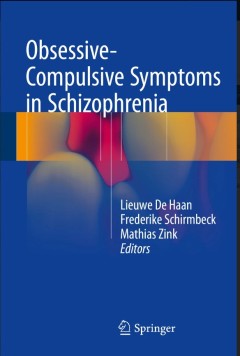
Obsessive-Compulsive Symptoms in Schizophrenia
This book summarizes scientific advances in our understanding of the interrelationship between obsessive-compulsive symptoms and schizophrenia and reflects on the implications for future research directions. In addition, guidelines are provided on practical assessment, diagnosis and treatment interventions, covering both pharmacotherapy and psychotherapy. The book acknowledges the need for a pe…
- Edition
- 1
- ISBN/ISSN
- 978-3-319-12951-8
- Collation
- VIII, 221
- Series Title
- -
- Call Number
- -

Fear and Anxiety in Virtual Reality Investigations of cue and context condit…
Virtual realities provide an outstanding tool in anxiety research. A fear conditioning study investigates and illustrates the development of anxiety disorders in humans. Hannah Genheimer describes the scientific background of fear and anxiety and presents an empirical study in a highly controlled virtual environment. Psychophysiological as well as subjective data on the participants’ fear and…
- Edition
- -
- ISBN/ISSN
- 978-3-658-08203-1
- Collation
- X, 79
- Series Title
- -
- Call Number
- -
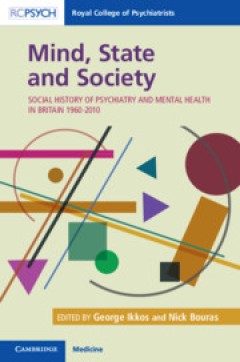
Mind, State and Society: Social History of Psychiatry and Mental Health in Br…
The present work emerged from more than a decade of conversations, co-organising events and co-authoring articles. Much of this has taken place through the Royal Society of Medicine (RSM) Psychiatry Section activities, especially at its programme on Psychiatry in Dialogue with Neuroscience Medicine and Society.
- Edition
- -
- ISBN/ISSN
- 9781911623793
- Collation
- -
- Series Title
- -
- Call Number
- T 362.209 IKK m c.1
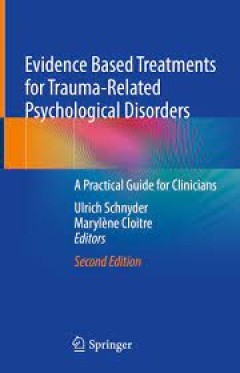
Evidence Based Treatments for Trauma-Related Psychological Disorders A Pract…
This book offers an evidence based guide for clinical psychologists, psychiatrists, psychotherapists and other clinicians working with trauma survivors in various settings. It provides easily digestible, up-to-date information on the basic principles of traumatic stress research and practice, including psychological and sociological theories as well as epidemiological, psychopathological, and n…
- Edition
- -
- ISBN/ISSN
- 978-3-319-07109-1
- Collation
- 4 b/w illustrations, 9 illustrations in colour
- Series Title
- -
- Call Number
- -
 Computer Science, Information & General Works
Computer Science, Information & General Works  Philosophy & Psychology
Philosophy & Psychology  Religion
Religion  Social Sciences
Social Sciences  Language
Language  Pure Science
Pure Science  Applied Sciences
Applied Sciences  Art & Recreation
Art & Recreation  Literature
Literature  History & Geography
History & Geography